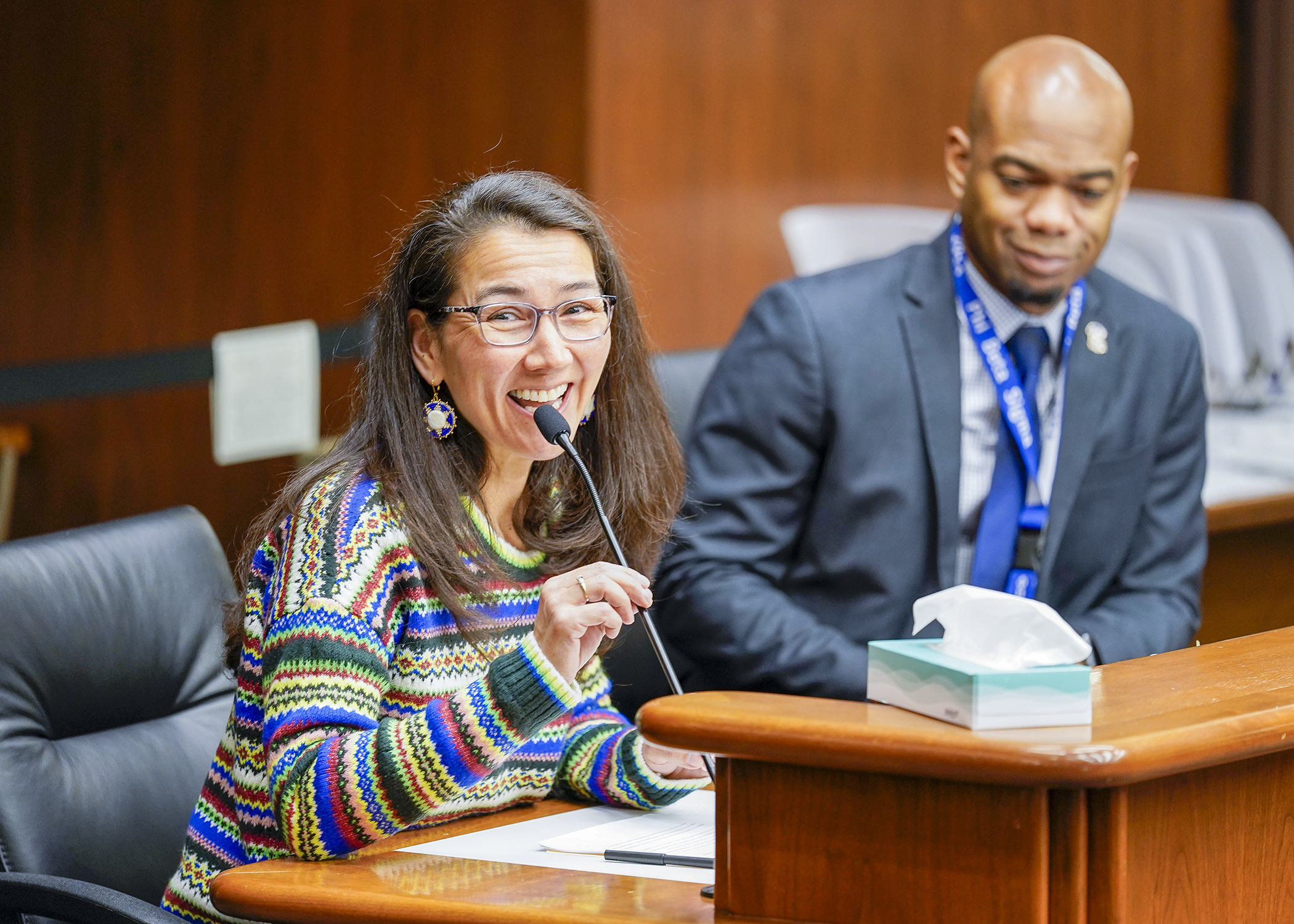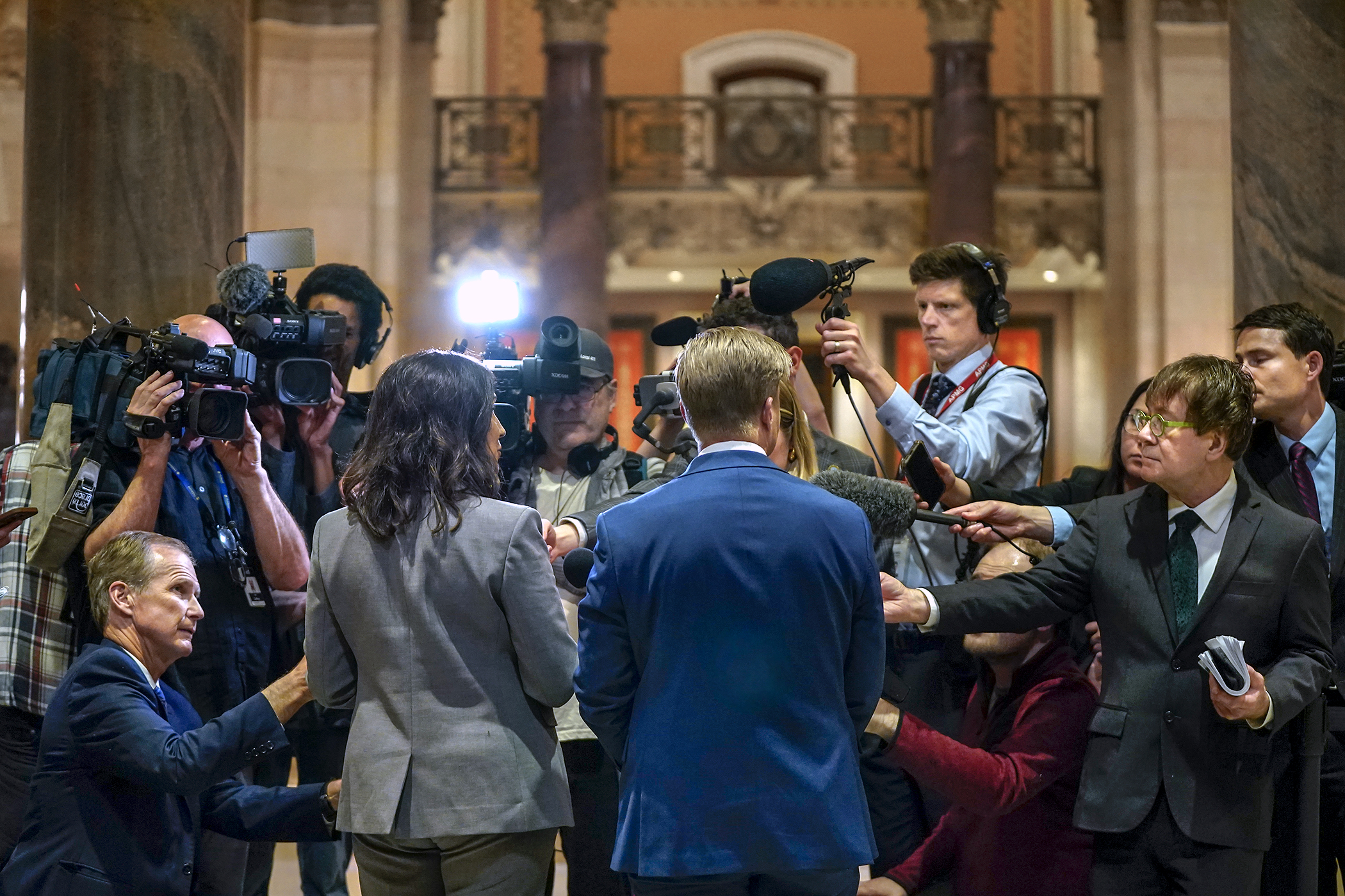House elections committee approves expanded use of ranked-choice voting

What can be done about the divide? Political polarization has been an area of concern for several years. Is ranked-choice voting the answer? Does it inspire candidates to build coalitions and find compromises? Or is it cumbersome and deeply unpopular wherever it’s been implemented?
Both opinions were shared at Friday’s meeting of the House Elections Finance and Policy Committee. The subject was HF2486, which, as amended, would expand the number of local governments that could adopt a ranked-choice voting system for local elections and appropriate grants to them to aid its implementation.
It would also create a 26-member task force to design a plan for using the system to elect the state’s members of Congress, governors and legislators.
After almost two hours of testimony and discussion before a capacity crowd, the committee voted 7-4 along party lines to re-refer the bill to the House State and Local Government Finance and Policy Committee.
Under a ranked-choice voting system, multiple candidates for a particular office appear on a ballot, and voters are asked to rank them in order of their preference. If no candidate receives 50% or more of first-choice votes, the candidate with the fewest votes is eliminated and those who ranked them first instead have their vote go to their second choice. The process continues until one candidate achieves the required 50%.
The system is currently in use for local elections in five Minnesota cities: Minneapolis, St. Paul, Bloomington, Minnetonka and St. Louis Park.
“Ranked-choice voting changes the relationship between candidates and voters, forcing candidates to reach out beyond their base, which is beneficial for our democracy and will facilitate broader voter engagement,” said Rep. Cedrick Frazier (DFL-New Hope), the bill sponsor. “This can lead to less polarizing campaigns and more diversity in candidates. It can also help remove the spoiler effect that discourages some candidates from running and can make some voters feel that they’re wasting their vote in our current winner-take-all system.”
There are only two states that employ ranked-choice voting for state and federal offices: Maine and Alaska. It’s widely credited with being responsible for the election of Alaska Congresswoman Mary Peltola last November. She was among the testifiers at Friday’s hearing.
“Ranked-choice voting rewards candidates that can build broad coalitions of voters and bring people together,” she said. “In our state, our ranked-choice system allowed me to run a positive campaign and focus on issues that voters care about. In order to win, I could not afford to alienate or ignore supporters of my opponents, as their second- and third-choice votes were critical in deciding who won. With ranked-choice voting, you have to be willing to listen to every voter. You have to at least consider opposing points of view. … I could not take any vote for granted, nor write any voter off.”
Secretary of State Steve Simon, who oversees the state’s elections, testified neither for nor against the merits of ranked-choice voting – something he said he advocated for while a member of the House -- but instead addressed the feasibility of its implementation.
“Minnesota is not yet ready for statewide ranked-choice voting,” he said. “Leave aside whether it’s a good thing or a bad thing to do, I can tell you that it’s an extraordinarily complicated thing to do. There are a lot of moving parts. You’ve heard here, including from a very esteemed guest, that Maine and Alaska do this statewide. But Minnesota is not Maine and Alaska. Those states have a very centralized election system. … Those states do not have counties. We do, and our election system is very much county-based.
“We have five cities that do it in Minnesota, but they do it in odd-year elections. We have not yet had a situation where a city has chosen to do it in conjunction with an even year, a statewide general election where we elect the governor or the president.”
As indicated by every seat being filled in the hearing room, 16 testifiers and 42 letters being sent to the committee – including one from another Congresswoman, Rep. Angie Craig of Minnesota’s Second District (she supports the bill) – it’s a topic that inspires a lot of debate.
Among committee members, Rep. Ben Davis (R-Merrifield) pointed out that the bill has no Republican co-sponsors and questioned whether it has bipartisan support. And Rep. Pam Altendorf (R-Red Wing) expressed the belief that the bill’s provisions would “bring in spoilers like never before.” But Rep. Kristin Bahner (DFL-Maple Grove) praised the idea of a task force being appointed to decide whether the system might work on a statewide basis.
Related Articles
Search Session Daily
Advanced Search OptionsPriority Dailies
Legislature — with budget incomplete — gavels out, prepares for special session
By Rob Hubbard Some years, state legislative sessions surge to a climax on their final day, a flurry of activity providing a sustained adrenaline rush, culminating in smiles of satisfaction as...
Some years, state legislative sessions surge to a climax on their final day, a flurry of activity providing a sustained adrenaline rush, culminating in smiles of satisfaction as...
Walz, lawmakers strike budget deal in session's final days
By Lisa Kaczke With five days to go in the 2025 session, three of four legislative leaders announced a budget agreement Thursday that would sunset unemployment insurance for hourly school empl...
With five days to go in the 2025 session, three of four legislative leaders announced a budget agreement Thursday that would sunset unemployment insurance for hourly school empl...